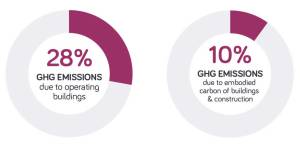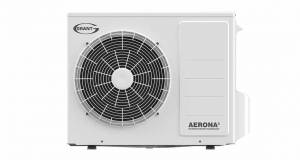- Blogs
- Posted
Why the government must increase energy prices to fight the recession
Whilst the recent falls in oil prices may appear to be a welcome relief in difficult economic times, they may ultimately prove to do more damage than good. As falling oil prices today cause oil companies to invest less in new production to meet future demand, prices will increase once more.
Ironically, as a result of the recession, energy prices in the short term are quite possibly as low as they’re ever likely to be again. It’s therefore critical that we use this last stab at cheap energy to future-proof our economy against increases down the line –all the more so when even conservative organisations like the International Energy Agency is stating that output from the world’s oilfields is declining at a rate of 9.1% per annum .
As unappealing as it may sound, there’s a strong argument that the government should artificially increase the price of fuels such as oil and gas, to reduce Ireland’s dependency on foreign imports into the future. This can be achieved in a way that keeps the burden on tax-payers to a minimum, and in many cases actually makes people wealthier.
A system like Cap and Share , which Richard Douthwaite and his colleagues at FEASTA developed, could be used to artificially increase prices. Under such a system, a price for carbon would be factored into energy prices. Each citizen would be given an equal allocation of carbon they’re entitled to emit, which could be set at the sort of target levels the government wants to achieve in line with the National Climate Change Strategy. The notion under Cap and Share is that, for citizens meeting the target for carbon emissions, the increases in their energy bills would be offset by the value of the carbon share they receive. Low emitters would actually be better-off.
Irish citizens currently emit circa twelve tonnes of carbon per annum, well above the EU average of eight tonnes. Suppose the government set a target of eight tonnes per citizen in the first year, and set the price per tonne of carbon at, a nice meaty sum such as €50. The government, through an intermediary such as one of our much beloved banks, would then give each citizen carbon shares worth €400 in year one. The bank, having bought the carbon shares, would sell them on to energy companies, who’d be bound to buy them to pay for every tonne of carbon emitted through the burning of fossil energy.
Assuming you don’t use much energy, the cost increase in your heating, electricity and petrol bills would be lower than the value of your carbon allowance. Only the people who are using a lot of energy, and are therefore over their target of 8 tonnes per annum, end up paying more, even when they've cashed in their carbon share.
Crucially, Cap and Share would give those people certainty - it would give them certainty that energy prices will remain relatively high, irrespective of what happens to wholesale energy prices, and therefore would help to motivate them to invest in energy efficiency/renewables. It would give the banks certainty that energy efficiency investments would yield a strong return, as the homeowners annual savings would not be so affected by global energy trends. This assumes that the government commits to Cap and Share with a gradually reducing cap each year up to, say, 2020.
Although Cap and Share has been promoted as a means of stimulating massive carbon reductions, it could also be of great significance in the context of the Irish economy, irrespective of our national carbon bill. Such a system could be used to effectively guarantee that energy prices will stay relatively high, and therefore make investment in renewable energy and energy reduction more predictable in terms of the return on investment. It could also help to ensure that the estimated €6 billion leaving the Irish economy this year – to buy fossil energy at a time when cash supply is already severely contracting – is never again repeated.







